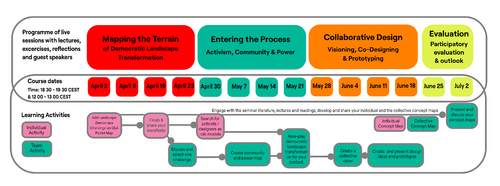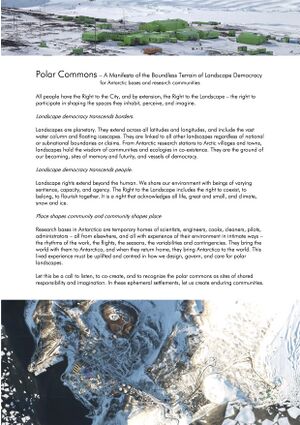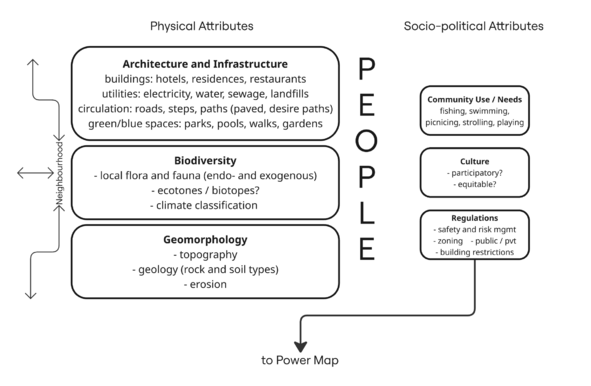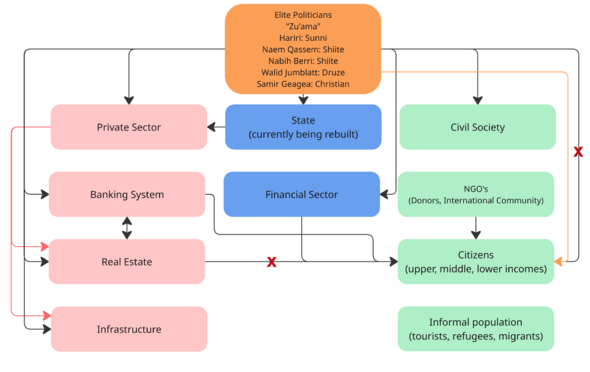Democratic Landscape Transformation 2025 - Team 11
>>> Back to working group overview
>>> Back to seminar reading list, session materials & recordings
>>> go to the Editing Help
Seminar process at a glance
Background of your team
Please present your team briefly. Which linguistic and cultural perspectives does each member bring in? Which disciplinary backgrounds are present in your team? Note: if you prefer to stay anonymous on this wiki, you can also use initials only or a nick name
- Aya Khattab, I am an Architecture Engineer with a Bachelor's degree from Cairo University, Egypt, earned in 2014. Over the past seven years, I have gained extensive and hands-on experience in the fields of architecture and landscape design. My curiosity and passion have always been centered on how we can create and manage public spaces that are not only visually compelling but also responsive to the real needs of their users. This interest drives me this year to start my masters degree in IMLA program in Germany.
- Morgan Ip, I am a researcher and teacher at the scales of material culture, architecture, landscapes and cities with a regional expertise in the Arctic. I have a Master's in Architecture from Carleton University in Canada and a PhD from the Oslo School of Architecture and Design in Norway. I have worked with communities and employ collaborative and participatory practices to map, visualize and analyze local and historical context to inform architecture and urban design, planning and decision-making. Linguistic and cultural perspectives: I was born in Canada with mixed European and Asian heritage and am a native English speaker, and have intermediate language abilities in French and Norwegian. I moved from a small industrial city with typical North-American car-centric and suburban planning, to Ottawa for my education. I lived in Toronto for a year before moving to Oslo for my PhD and then to the UK for a postdoc at the Scott Polar Research Institute, University of Cambridge. I am honoured to participate in OLA to keep abreast of methods and the extraordinary set of contexts with which to understand landscape democracy.
- Negar Dokouhaki, I am a master’s student in Architecture and Creative Practices for City and Landscape at the University of Bologna, Italy. With a foundation in architecture and a growing interest in urban design, and urban planning. my academic and creative work explores how cities and landscapes can be shaped through socially responsive and environmentally conscious design strategies. I am particularly drawn to themes of public space, ecological resilience, and community participation. My current studies aim to bridge design practice with critical thinking to foster more inclusive and adaptive urban environments
- Angelo Mañego, I am currently taking up a Bachelor’s degree in Landscape Architecture at Bulacan State University. I grew up on a farm, surrounded by nature, and most of my childhood was spent outdoors—running through fields, picking fruits, and enjoying the quiet of the land. Those memories shaped how I see the world and made me appreciate the beauty and value of natural spaces. That is what inspired me to take this path. I want to become a certified landscape designer someday so I can create places that bring people the same feeling of peace, joy, and connection that I experienced growing up. I joined OLA because I know I still have a lot to learn. I want to grow not just in design, but also in understanding how to work with different people and communities, and how to create spaces that are fair, thoughtful, and welcoming for everyone.
- team member, xxx
- team member, xxx
Your Landscape Democracy Manifestoes (Phase A)
Here you can add here the links to the manifestoes you have presented on April 23. Please make sure that the links are accessible. You can also add them directly here on the wiki, they need to be png or jpg format then.
- Aya Khattab add link
- Morgan Ip
- Negar Dokouhaki , Manifestone
- Angelo Mañego, Manifesto
- team member, xxx
- team member, xxx
Entering the Process: Activism, Community and Power (Phase B)
Global Landscape Democracy Role Models and Design Activism
- Due: May 14
At the beginning of phase B we ask you to identify people who are already active for democratic landscape transformation. These can be planners and designers, NGOs, collectives or activists, or people operating creatively at the interface of these categories. 'Design activism' is a possible overarching category. We created a list some time ago, but it has a very US/European focus, due to the history of our project. We really want to expand this and hope you can bring in new people and movements from around the globe.
On May 14, every team member introduces a landscape democracy activist/or design activist individual or group. Please add the people you introduced, you may also add the presentation material used with a downloadable link:
- Aya Khattab, The presented activist is Christopher Alexander add link
- Morgan Ip, presented as Jane Jacobs walking along Beirut's waterfront
- Negar Dokouhaki, presented Nader Ardalan as the activist.
- Angelo Mañego, the selected activist is the late Gina Lopez (PH). (Get to know her through this link) [1]
- team member, xxx
- team member, xxx
Your Team's Landscape Democracy Challenge (Phase B)
- Due: May 21
Context and Location
Briefly describe here the context the landscape democracy challenge you selected on April 23, 2-3 sentences, you may add the link to the manifesto that already exists
Landscape and Community Map
Present here a visual representation of the landscape and community context of the area. What are the main spatial features? Which actors can you identify and how are they related to the area? Which values exist and for whom? What is at risk and why? Try to generate creative/conceptual/synthetic representation
Power Map
Based on the landscape and community context depicted above: How is power distributed? Who and what has a lot of power? Who and what has no power? Who and what is strongly affected by the landscape democracy challenges? Who and what is less affected? Are these actors connected or disconnected? Any veto-players known? Try to generate creative/conceptual/synthetic representation
Your Team's Landscape Democracy Vision and Ideas (Phase C)
- Due: June 18
Collective Vision
If you were to redesign the power map of your area and start a process of democratic landscape transformation: Which long term-goal could keep the process going? What could be a collective vision that integrates the goals of your team? Give a name to your vision. Try to generate creative/conceptual/synthetic representation.
A prototype of the first step
How would you enter the process? Which prototype could activate it? How would you introduce the prototype to the community?
You can present your results in this gallery:
- Your vision 1.jpg
add caption here
- Your prototype example 1.jpg
add caption here
- Your prototype example 2.jpg
add caption here
Cross-cutting activity: Readings, concepts and definitions (Phases A - D)
- Due: July 2, 2025
While working in your group, please start to express your personal understanding of the relation of landscape and democracy in the form of a concept map with linking words or any other diagrammatic representation. Please make your maps very visual and not just verbal. Think critically about why one map differs from another.
The final product is a shared concept map that integrates the various understandings present within your team.
About concept mapping
Before starting the exercise you can read this article by Joseph D. Novak & Alberto J. Cañas about Theory Underlying Concept Maps and How to Construct and Use Them. This paper gives a good explanation of how concept maps are conceived and developed.
You can use any tool you like for producing your concept map. However, since the result needs to be submitted digitally we recommend the following open source software for producing your maps:
- Cmap Tools >>> you can also work with your group on the Cmap cloud doing a shared map
- VUE - The Visual Understanding Environment
- Use a shared whiteboard to develop your integrated concept map, such as MIRO or MURAL
How to present your concept maps
- Possible format: JPG (for wiki upload) or link to any other resource
- We give you below a draft image gallery where you can add pictures of your map (in JPG or PNG format)
- You can present your integrated understanding as one concept map or your present individual ones and the integrated one.
- add as many additional materials as you need
Overview of your concept maps (individiual and integrated)
- Yourfilename.jpg
- Yourfilename.jpg
- Yourfilename.jpg
- Yourfilename.jpg
Please finish with a short reflection (Phase D)
Due: July 9, 2025
- What are the similarities and differences in your team regarding your understanding of what democratic landscape transformation is?
- In how far did the seminar lectures and readings help you to clarify this?
- What will you take home from this seminar?



